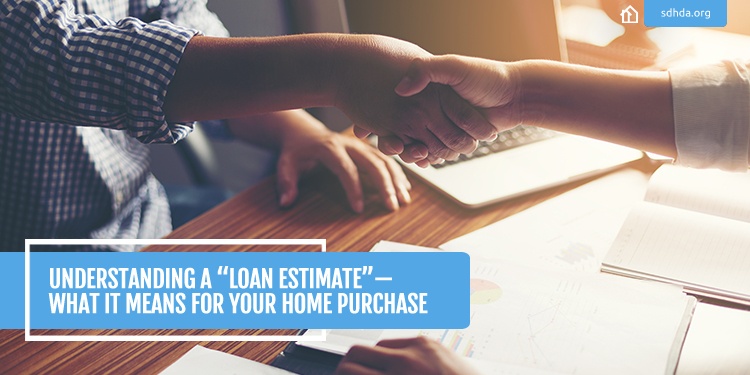
Navigating the terminology of homebuying may introduce you to some new phrases that weren't in your vocabulary before. One such phrase is a "loan estimate" (f.k.a., a "good faith estimate"), which is a term used to identify a document that can be extremely helpful to you when shopping for the perfect mortgage.
Here are some aspects of loan estimates you should know about as a first-time homebuyer.
Your Legal Right
A loan estimate is something you're entitled to legally—in fact, when you apply for a home loan, you should receive one from the lender in question no later than three business days after your application is submitted. You should also receive a secondary loan estimate once your application is accepted, if it isn't accepted within the initial three-day window. This is also the case when you apply for a loan through a broker. Every applicant is entitled to a loan estimate—make sure you receive yours in a timely manner.
Why it Matters
Having a loan estimate in hand can be incredibly useful to a potential homebuyer—it essentially breaks down what you can likely expect to pay when closing on a given property. This makes price-comparing between lenders all the easier, and a loan estimate is neither a guarantee nor a commitment. It's a tool to make sure you understand every party's responsibilities in the home-purchase process.
What it Includes
The loan estimate can include a variety of details about your potential mortgage, including any fees your lender may charge you in the process (and how many of these are paid in advance of closing), expenses charged by governmental bodies for home purchases and any third-party expectations when it comes to escrow. The primary pieces of information that your loan estimate includes, though, are your upfront costs, the total amount of the mortgage, the length of the terms of the mortgage and your expected interest rate.
How to Read It
Though a loan estimate is, as the name suggests, an "estimate," it can offer a relatively accurate insight into your expected charges when buying a house. Since the source of your loan estimate is your lender, one aspect you can be fairly confident about is the amounts of any fees the lender itself charges. Keep in mind, though, that this is merely a glimpse into the expectations—the amounts can vary and can increase a bit by closing day.


